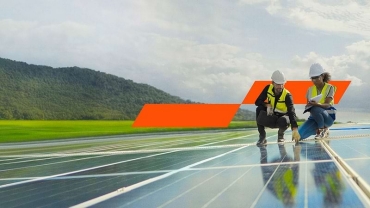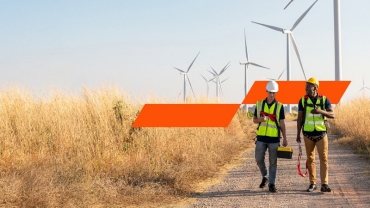
A greener system and a healthy economy
20/05/21
WEC outlines post-covid scenarios for achieving Paris climate goals
Just before the outbreak of the coronavirus in 2020, the World Energy Council Netherlands (WEC) published the report Phasing out carbon, containing a scenario for decarbonising the energy mix in northwestern Europe. The WEC's new report, About black swans and green futures: decarbonising Northwest Europe after Covid-19, looks at whether or not the corona pandemic has jeopardized the achievement of the Paris climate goals.
PwC is affiliated with the World Energy Council, which deals with the world energy issues of today and in the future.
World Energy Council (WEC) webinar
Impact Covid-19 on northwestern Europe's decarbonisation pathway
Possibly a more positive scenario
Jeroen van Hoof, chairman of WEC Netherlands, indicates that the new WEC report builds on the one from March 2020. ‘In our report from last year we concluded with the positive message that the Paris climate goals are achievable, provided that a number of conditions would be met.’
‘The corona pandemic has shaken the world. The big question now is whether Covid-19 has brought about lasting changes or has only resulted in a temporary dip in emissions and a temporary heightened attention to the need for greening, after which we continue on the previous path. If we maintain the momentum now created by the corona pandemic, we could end up with a more positive scenario than before the pandemic.’
Two post-covid scenarios
The report About black swans and green futures distinguishes two possible post-covid scenarios. ‘According to the first scenario, the
economy is in hibernation due to the corona crisis and then wakes up again to continue on the same path’, said Jan Willem Velthuijsen, chief economist of PwC and coordinator of this report on behalf of the WEC.
‘That would mean that we temporarily emitted less CO2, but then go back to the old level. If the economy doesn't change structurally, we will still remain in a reasonably optimistic scenario as described in last year's report and the Paris climate goals will be attainable.’
But Velthuijsen indicates that there are also arguments for arriving at a second scenario, characterised by accelerated growth of the European economy after the corona crisis. ‘Huge financial stimulus packages, evolving mobility, an increase in working from home, more efficient working and, associated with this, an accelerated digital transformation and a changing energy demand, point to a potentially higher economic growth path in Europe.’
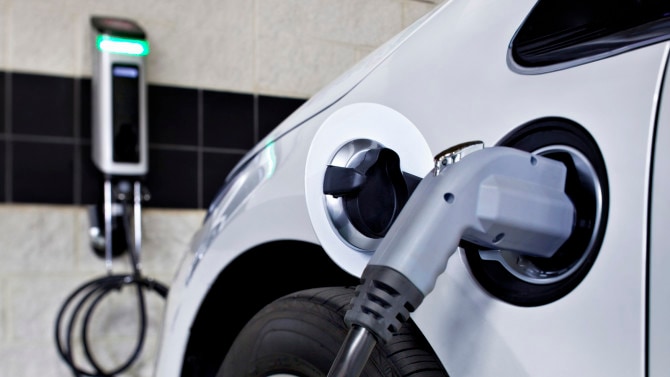
Accelerated decarbonisation
If all other conditions remain the same, a higher economic growth path also means more CO2 emissions, which then means that the Paris climate targets would not be achieved. But Velthuijsen sees reasons to believe that making the energy mix low carbon can also go faster, which will offset this effect.
‘We need to ensure that some of that rapid economic growth comes from green investments. For example, the European Commission's restructuring fund clearly has a green component and the Green Deal is a sign of a clear green agenda in Europe. You also see that, for example, Germany and France are freeing up huge budgets for the hydrogen economy. I really see an acceleration of momentum in this, also in the field of energy.’
Europe has a good starting position
Stepping on the brakes when it comes to CO2 emissions means more intensive decarbonisation. To this end, Europe must accelerate the transition to a different energy mix. Velthuijsen: ‘In Europe, the use of coal is really on the wane and if we continue with the Green Deal, it could lead to serious change. In that respect, Europe can really be at the forefront of the world.’
Large industrial clusters in Europe play an important role in this. Van Hoof: ‘Within those clusters you see more cooperation and a focus on circular business models and a more efficient use of energy. In the chemical industry, for example, you see the possibilities of hydrogen as an energy source for chemical processes. This can have a huge impact on energy demand and the greener composition in Europe.’
‘Europe already has these clusters and the associated infrastructure needed for the energy transition. Think of Chemelot in Limburg and the industry around Rotterdam. The infrastructure behind it, for example the oil and gas networks that are already there, can be converted into a green system. Europe is therefore in a good starting position in this scenario.’
Greener system and healthy economic story
Van Hoof: ‘If we can maintain the high level of awareness surrounding the energy transition and its importance for people and the planet, and receive help from both the government and the business world, we will ultimately not only have a greener system, but also a healthy economic story.’ Velthuijsen: ‘And if it is possible somewhere, it is in northwestern Europe.’
Contact us
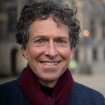
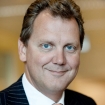
Global Leader, P&U and EU&R, Partner, PwC Netherlands
Tel: +31 (0)65 160 91 78












